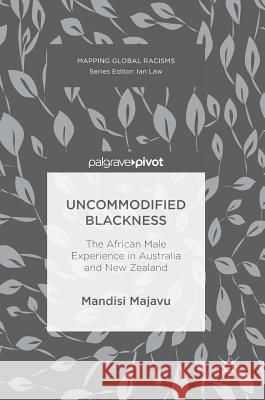Uncommodified Blackness: The African Male Experience in Australia and New Zealand » książka
topmenu
Uncommodified Blackness: The African Male Experience in Australia and New Zealand
ISBN-13: 9783319513249 / Angielski / Twarda / 2017 / 146 str.
Kategorie:
Kategorie BISAC:
Wydawca:
Palgrave MacMillan
Seria wydawnicza:
Język:
Angielski
ISBN-13:
9783319513249
Rok wydania:
2017
Wydanie:
2017
Numer serii:
000451272
Ilość stron:
146
Waga:
0.33 kg
Wymiary:
15.6 x 21.7 x 2.0
Oprawa:
Twarda
Wolumenów:
01
Dodatkowe informacje:
Wydanie ilustrowane











